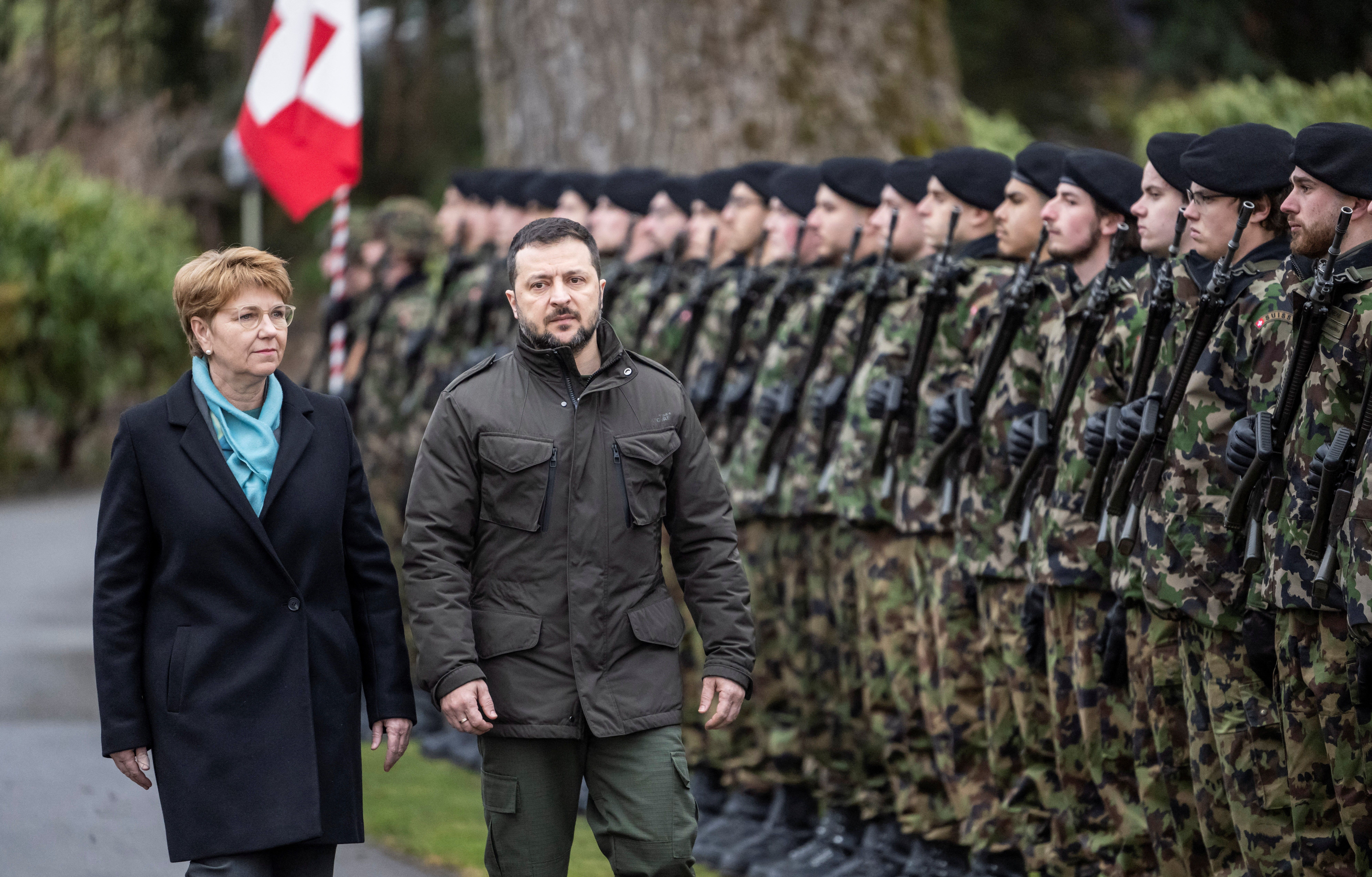The Ukraine “Peace Summit” in Geneva this weekend is not really a summit and is not really about peace.
The agenda has been scaled back to discussions of limited measures aimed not at ending the war, but at softening some of its aspects. Outside Europe, very few international leaders are attending — including President Biden, who is sending Vice President Kamala Harris and national security adviser Jake Sullivan instead.
Of the 10 points in the Ukrainian government’s “peace plan,” only three will be formally discussed — though President Zelensky will presumably still seek to promote all of them at the meeting. Ukraine’s demands for complete Russian military withdrawal, war crimes trials, reparations for war damages, and security guarantees have all been omitted from the agenda.
According to Swiss Foreign Minister Ignazio Cassis, Swiss and other diplomats worked to “modulate” the Ukrainian peace formula, with the result that only three points will be under official discussion: nuclear safety, food security (i.e. Ukraine’s ability to export its food by sea) and the return of Ukrainian children transferred to Russia.
These it seems are the only issues that most of the non-Western participants are prepared to discuss, and on which anything resembling a global consensus is possible. Reportedly, a previous Western attempt to rally support in the Global South for Ukraine’s “peace plan” at a confidential meeting in Riyadh in December 2023 was snubbed by most invitees.
According to Swiss President Viola Amherd, “This is not about propaganda. This is about the basis of humanitarian aid provided by Switzerland, based on fostering peace (and) to provide a platform to initiate a dialogue.”
If concrete steps can be taken on these issues, this will indeed be a very good thing in itself, and could also provide a small starting point for future talks with Russia. It should be clear however that this is nothing remotely like a formula for peace.
As a “peace summit,” this meeting was in fact always a non-starter. The Ukrainian government has decreed that direct talks with the Russian government are illegal (after Russia declared the illegal annexation of four Ukrainian provinces), and the U.S. administration has no intention of itself initiating peace talks, at least until after the November presidential elections. Russia was not invited to the meeting, though the Swiss Foreign Ministry acknowledged that, "For Switzerland, Russia's involvement in the peace process is also essential. The (ministry) is working actively to involve Russia in the peace process."
China has also refused to attend. The Chinese government stated that:
"China has always insisted that an international peace conference should be endorsed by both Russia and Ukraine, with the equal participation of all parties, and that all peace proposals should be discussed in a fair and equal manner. Otherwise it will be difficult for it to play a substantive role in restoring peace."
China’s non-attendance, like the scaling-back of the agenda by international participants, reflect a recognition of reality on their part: that while Western governments state that any eventual peace agreement depends on the Ukrainians, Kyiv’s terms for peace are in fact completely non-viable even as initial negotiating positions, and even if Ukraine was prepared to negotiate. They have been rejected out of hand by Russia.
For Ukraine to recover any significant portion of the land it has lost to Russia now looks highly unlikely given the balance of military and economic strength between the two sides, and the complete failure of last year’s Ukrainian offensive. To recover everything it has lost since 2014 looks impossible. It would require the total defeat of the Russian armed forces, which no serious military observer now expects. To bring this about would require NATO to launch a full-scale attack on the Russian army in Ukraine — something that has been ruled out by the Biden administration and the great majority of NATO governments, and that if it occurred, would make nuclear war not just likely, but highly probable.
This is equally true of the Ukrainian demand for war crimes trials of the Russian government and high command. In a statement that also ruled out Russia’s key condition of Ukrainian neutrality, President Zelensky said:
“A crime has been committed against Ukraine, and we demand just punishment… [T]his is the formula of justice and law and order that Russia has yet to learn. As well as any other potential aggressors. What is not in our formula? Neutrality.”
Here, however, it is necessary for the U.S. and European governments and establishments to understand something as well. As a result of Israeli crimes in Gaza, U.S. support for and European acquiescence in these crimes, and U.S. rejection of the right of the International Criminal Court to investigate and judge these crimes, as far as the greater part of the world community is concerned, Washington has forfeited any moral right to take a stance on the war crimes of others.
Of course, longstanding U.S. rejection of the jurisdiction of the ICC over American citizens has long undermined Washington’s credibility in this area. Gaza has buried it.
The Western and Ukrainian purpose behind the “Peace Summit” was to demonstrate the isolation of Russia and rally support for Ukraine outside the West. According to Dr. Zachary Paikin of the Quincy Institute and the Geneva Center for Security Policy:
“There has been a realisation in the West that they need to actually talk to countries in the global south about their concerns because the fallout of the war for their food security for their national development goals, etc, is significant and comes on the heels of the Covid pandemic.”
The actual result may be to draw attention to global opinion concerning the unrealism of Ukraine’s “peace plan,” and the moral and legal emptiness of U.S. claims to global primacy.
- Diplomacy Watch: What’s the point of Swiss peace summit? ›
- Why these countries turned their backs on Ukraine 'peace' doc | Responsible Statecraft ›
















